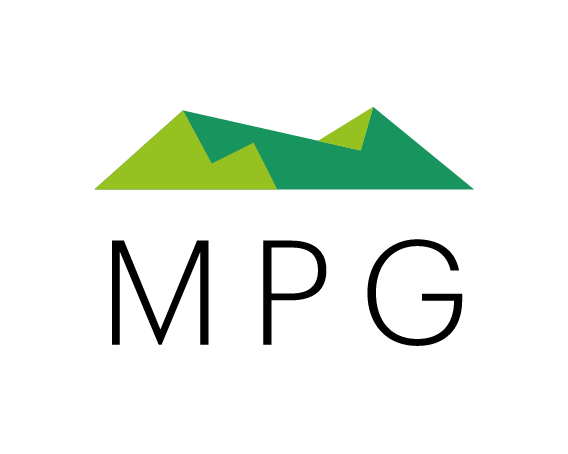MPG celebrates 30 years of mineral and waste consulting excellence
This year, we’re celebrating three decades of MPG.
We’ve been helping sites across the breadth of the UK with their waste and mineral planning and permitting needs for 30 years – and we’re extremely proud of the amazing projects we’ve played a part in facilitating for our clients.
During our tenure in the sector, we’ve worked with companies both large and small – from single-site operators to corporate multinationals, and the Government.
We’ve been appointed by local authorities such as Kirklees and Lancashire Country Council through to well-known names such as Breedon Group Plc and Sibelco, for our trusted expertise.
Having been in the industry for a long time, we’re always looking at ways to help shape the future of the sector – whether that be on a local or government level – to help improve policies or by raising awareness of the importance of high-quality minerals and waste developments.
In addition, we’re keen to inspire the next generation of experts – as seen with the launch of our ‘Diary of a mineral, waste, and environmental consultant’ blog series, which showcases what a typical week looks like for MPG employees. We’ve always been proud of the contribution MPG makes to the mineral and waste industries through the comprehensive training of staff.
As part of this celebratory blog post, we had to feature some words of wisdom from one of MPG’s founders, Nick Horsley – now director of planning, industrial minerals, SAMSA, and MPA Wales at the Mineral Products Association – asking him how the firm grew to be the well-known brand it is today, alongside his wider learnings during his time steering the MPG ship.
How did MPG begin?
“Had there not been a recession in the early 1990s, it probably wouldn’t have begun at all. Martin Millmore – my MPG co-founder – and I were the planning arm for a geotechnical consultancy in Manchester and had brought a number of new clients in to the business – from local independent companies to major blue chip minerals organisations.
“However, the business model for the consultancy was failing and rather than adapt positively to the challenges of a recession, the firm failed to change. Martin and I talked tentatively about setting up our own consultancy and when one of our former colleagues was shown the door we firmed up our plans for MPG.
“We chose the name the ‘Mineral Planning Group’ as at the time, all minerals policies were called MPGs – as such people within our field would remember the acronym.
“We were fortunate to bring with us many of our clients from the previous consultancy. That was 30 years ago and despite having only been a co-director of MPG for the first three years, I’m happy that this time laid the foundations for both the consultancy and my own experience.”
What was your vision for the business?
“Our main aim was to survive. We did this by having limited overheads, and offering good advice, at an affordable rate.
“With Martin working from Fox Brow near Bradford and my working from my home town of Fleetwood, we had a good coverage of the North of England – but this didn’t limit the geographical extent of the company.
“Our business model would have been fitting for the recent challenges faced by society during the pandemic. Ultimately, we wanted to make a success of the business… after 30 years of MPG, it has been a success and I’m pleased to have not only played my part in that, but proud to have seen how many people who have worked for MPG, have all gone on to be successful and excellent minerals professionals in their own right.”
Our current director, Chris Heffernan, also added: “It’s my vision to expand on what we already have – not change what we stand for. Being an attractive proposition to a broader spectrum of the development sectors on the basis of our existing approach, is the ultimate goal.”
What did you learn from your time at MPG?
Nick went on to say: “Firstly, ‘at least 10 years’ means ‘at least 10 years’ when it comes to mineral planning policy. I also learnt to challenge robustly, the proposed government changes in planning policy. Had I not followed this, Mineral Planning Guidance Note 15 would have disappeared much sooner, when MPS1 was produced.
“We managed to hang on to this until the Government’s Fahrenheit 451 of planning policy and the introduction of the NPPF. Sadly, the depth of understanding of why minerals policy had arrived at where it was, was lost in the Government’s corporate memory and in many areas, this has still to be replaced. Never fear, we won’t give up.”
What is one of the biggest MPG highlights?
We just had to ask the wider team this question – and it quickly became apparent that there were too many to choose from, when looking back over the last three decades.
However, one of the unanimous high points was the approval of a planning application for a 130-hectare extension to a gypsum and anhydrite mine, to release six million tonnes of mineral.
Finally, whilst we have seen, and been a part of, big industry changes over the years, our ethos remains the same – straightforward and bespoke advice, every time.
If you’d like to get in touch with us about a project, please email headoffice@mpgyorks.co.uk, call 01274 884599, or fill out the enquiry form on our dedicated webpage.

